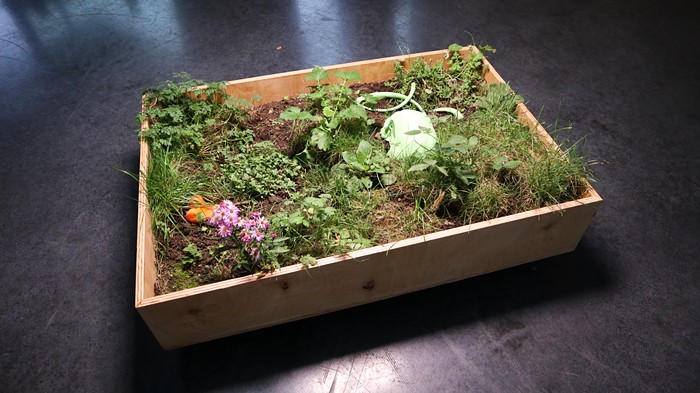
As reported by Carey Dunne on Hyperallergic, the photographer Carol Highsmith has filed a lawsuit against Getty Images because in December, she got a letter from Getty "accusing her of copyright infringement for featuring one of her own photographs on her own website."
That's how she learned that Getty was sending the same letters to other people trying to use her images.
She's donated tens of thousands of those images to the Library of Congress, and believed that meant they were in the public domain, and therefore usable by anyone.
So she's turning the tables on Getty, and suing them for copyright infringement—to the tune of $1 billion.
Now, Highsmith has filed a $1 billion copyright infringement suit against both Alamy and Getty for “gross misuse” of 18,755 of her photographs. “The defendants [Getty Images] have apparently misappropriated Ms. Highsmith’s generous gift to the American people,” the complaint reads. “[They] are not only unlawfully charging licensing fees … but are falsely and fraudulently holding themselves out as the exclusive copyright owner.” According to the lawsuit, Getty and Alamy, on their websites, have been selling licenses for thousands of Highsmith’s photographs, many without her name attached to them and stamped with “false watermarks.”
(The whole lawsuit is here.)
Why $1 billion? This is a delicious detail. Hyperallergic reports that if you multiply each of Highsmith's photographs by the maximum in damages for a single image—$25,000—then you get only $468.875 million.
But the rules say that if the company in question has been found in violation of the same copyright law within the past three years—and Getty has—then the plaintiff is allowed to seek three times the maximum.
In other words, in seeking $1 billion, Highsmith isn't even smacking them with the absolute max, which would be, if I understand correctly, $468,875,000 times three: $1,406,625,000, or more than $1.4 billion.
I'm fascinated by the comments on the story, which raise plenty of ire but also plenty of legal and logistical tangles.
A commenter going by the name ErikD claims he also once received a threatening letter from Getty with a demand to pay, for images he "was assured by the web designer were in the public domain." His attorney, he writes, responded with a demand that Getty provide proof it is the copyright holder, and explain how it arrived at the valuation, "and it was dropped within 24 hours."
"This is going to get much bigger," ErikD writes. "Getty is well know for operating a 'shake-down' scheme (aka copyright troll), in which web crawlers identify cases of (supposed) copyright infringement, followed by an automated email demand letter to the owner of the site demanding outrageously inflated licensing fees (e.g. $600 for a photo you could buy for $5). Legal action is threatened if payment is not made within 14 days. The law-firm they work with gets a cut."
ErikD provides a link to an Illinois State Bar Association newsletter about this very subject.
Several commenters note their disdain for Getty and other big image licensers. But at least one commenter, OnlyVisiting, says Highsmith does all photographers a disservice by making her images free.
"By giving away her work for free, Ms. Highsmith has reduced the potential for a working photographer to get assignments or sell stock of those same subjects. It is SO challenging to get enough good paying work as a photographer when you are competing against FREE! In addition, the more high quality imagery that is available for free, the more photographs in general lose their value in the public eye," writes OnlyVisiting.
The legal questions could turn out to be interesting. There's a long thread in the comments about whether "public domain" is a legal entity, and about what it takes for a creator to relinquish copyright.
Will the suit become influential or will she simply settle out of court? I'll be curious to see.


















